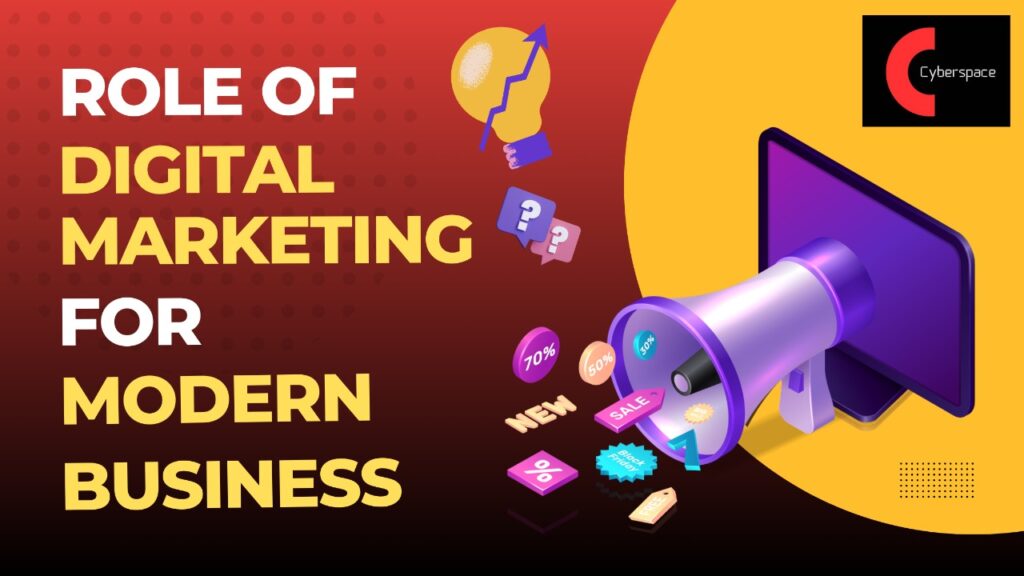The Role of Digital Marketing in Modern Business
In the fast-paced digital era, where technology is constantly evolving, businesses need to adapt to the changing landscape to stay competitive. One of the key elements in this adaptation is the strategic implementation of digital marketing. This blog explores the pivotal role of digital marketing in modern business, focusing on building brand awareness, increasing customer engagement, and driving website traffic and conversions.
In a world inundated with information, standing out in the crowd is a challenge for businesses. Digital marketing serves as a powerful tool to create and enhance brand awareness. Leveraging various online channels, businesses can establish a consistent brand presence, ensuring that their target audience recognizes and remembers them.
Leveraging Social Media Platforms
Social media has become an integral part of people’s daily lives. Businesses can harness the potential of platforms like Facebook, Instagram, Twitter, and LinkedIn to connect with their audience on a personal level. Engaging content, regular updates, and interactive posts contribute to building a loyal online community around the brand.
Search Engine Optimization (SEO) for Brand Visibility
Implementing robust SEO strategies ensures that the brand appears prominently in search engine results. This not only enhances visibility but also establishes trust among users. By optimizing website content, incorporating relevant keywords, and building quality backlinks, businesses can elevate their brand’s position in the digital landscape.
2. Increasing Customer Engagement
Customer engagement is the heartbeat of any successful business. Digital marketing provides tools and techniques to foster meaningful interactions with the target audience, ultimately strengthening the brand-consumer relationship.
Content Marketing for Engagement
Compelling content is at the core of digital marketing. Through blogs, articles, videos, and infographics, businesses can provide valuable information to their audience. This not only showcases expertise but also keeps the audience engaged and interested in what the brand has to offer.
Email Marketing for Personalized Communication
Email marketing allows businesses to tailor messages based on customer preferences and behaviors. Personalized communication builds a sense of exclusivity and encourages customer loyalty. By delivering relevant content and promotions, businesses can keep their audience informed and engaged.
3. Driving Website Traffic and Conversions
A visually appealing website is just the beginning; driving traffic and converting visitors into customers require a strategic approach. Digital marketing plays a pivotal role in attracting the right audience and guiding them through the conversion funnel.
PPC advertising is a targeted approach to drive immediate traffic to a website. By bidding on keywords relevant to their business, companies can ensure their ads appear when potential customers search for related products or services. This targeted approach maximizes the chances of conversion.
Conversion Rate Optimization (CRO)
Simply attracting traffic is not enough; optimizing the website for conversions is equally crucial. CRO involves analyzing user behavior, identifying pain points in the customer journey, and making data-driven changes to enhance the likelihood of conversions. A seamless and user-friendly website experience is key to turning visitors into customers.
Conclusion
In conclusion, the role of digital marketing in modern business cannot be overstated. From building brand awareness to increasing customer engagement and driving website traffic, its impact is profound. Embracing digital marketing strategies is not just a choice; it’s a necessity for businesses aiming to thrive in the ever-evolving digital landscape. As you navigate the dynamic world of online marketing, remember: a strategic digital approach can be the catalyst for your business’s success, fostering brand growth, customer loyalty, and sustained profitability.

